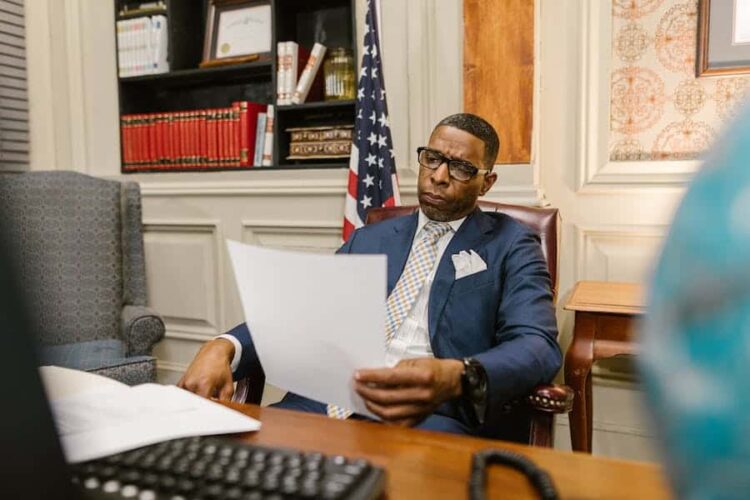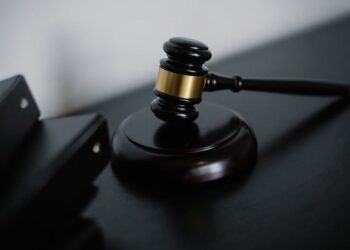A legal proceeding often relies heavily on witnesses. Witnesses provide firsthand accounts of what happened, helping to construct the narrative that the judge and jury need to understand the case. But what happens if a witness is unavailable? This blog post will delve into the question, “Can the state prosecute without a witness??” and explore the underlying complexities of the legal system.
“Can The State Prosecute Without A Witness?”
Yes, the state can prosecute without a witness. Although witnesses often play a vital role in legal proceedings, their absence does not necessarily prevent prosecution. The state may rely on other forms of evidence, such as physical evidence, documentary evidence, or expert testimony, to build a case. However, prosecuting without a witness may present unique challenges and complexities that must be carefully navigated by the legal professionals involved.
Reasons Why A Witness Might Be Absent
Fear or intimidation might keep a witness from coming forward. This is particularly common in cases involving violent crimes or organized criminal groups. Witnesses may fear retaliation against themselves or their loved ones, which can deter them from testifying. Some might receive direct threats, while others might simply be afraid of potential consequences. Law enforcement may offer protection in some cases, but the fear of retribution can still be a powerful barrier to witness participation.
Sometimes, witnesses are absent due to memory issues or uncertainty about the facts. As time passes, memories can fade, and specific details may become unclear. If a witness is uncertain about what they saw or heard, they might feel uncomfortable testifying, fearing that they might inadvertently provide inaccurate information. Moreover, trauma related to the event can affect memory, further complicating the witness’s ability to provide a clear and accurate account.
In some instances, a witness may be physically unable to attend the trial. Illness, disability, or even death can prevent a person from appearing in court. Additionally, geographical barriers, such as living in a different jurisdiction or country, might make it impractical or impossible for a witness to attend. Courts may attempt to accommodate these witnesses through video testimony or depositions, but these options may not always be feasible or appropriate.
Finally, a witness might be absent simply out of unwillingness to cooperate with the legal process. Personal, ethical, or moral objections may lead to a refusal to testify. Some witnesses might want to avoid the stress, anxiety, and publicity associated with a high-profile trial. Others may have close relationships with the parties involved in the case, leading to conflicting loyalties. Whatever the reason, this unwillingness to cooperate can pose significant challenges to the legal process, as it may deprive the court of vital information needed to reach a fair and just conclusion.
These reasons highlight the complexities involved in relying on witness testimony in legal proceedings. The absence of a witness doesn’t simply create a gap in the evidence; it can also raise questions about fairness, justice, and the integrity of the judicial process. As such, legal professionals must carefully navigate these issues, seeking alternative sources of evidence when a key witness is unavailable and being mindful of the underlying reasons that might explain a witness’s absence.
Other Evidentiary Considerations In A Trial
In the absence of a key witness, the legal system does not necessarily come to a grinding halt. Other evidence can still be used, such as:
Physical evidence: DNA, fingerprints, video footage, etc., can still be strong evidence even without a witness.
Documentary evidence: Contracts, emails, written correspondence, etc., may be used to establish facts.
Circumstantial evidence: Sometimes, the circumstances surrounding the incident can be enough to build a case.
Expert testimony: Experts in various fields can provide opinions based on their specialized knowledge.
Potential Challenges In Prosecuting Without A Witness
Prosecuting a case without a key witness can present numerous challenges. Here’s an exploration of some of the most significant hurdles that might arise.
The “Hearsay” Rule And Its Exceptions
The hearsay rule, which generally prevents out-of-court statements from being used to prove the truth of what’s being asserted, can be a major obstacle when a key witness is absent. Without the witness present to testify, certain evidence might be considered hearsay and, therefore, inadmissible. However, there are exceptions to this rule, such as prior recorded testimony or statements made under certain conditions, but navigating these exceptions can be complex and requires careful legal analysis.
Potential Defense Objections And Strategies
When a witness is absent, the defense may object to certain pieces of evidence or raise issues about the reliability of the prosecution’s case. The defense might argue that without direct witness testimony, the evidence is insufficient to support a conviction. They might also utilize strategies to cast doubt on the prosecution’s alternative evidence, making it more difficult for the prosecution to meet the burden of proof.
The Risk Of Reasonable Doubt
One of the foundational principles of criminal law is that the prosecution must prove guilt beyond a reasonable doubt. Without a key witness, establishing this level of certainty can be more difficult. The absence of direct eyewitness testimony may leave gaps in the narrative, allowing the defense to argue that reasonable doubt exists. This can be a significant challenge for the prosecution to overcome.
Ethical And Legal Considerations
Prosecuting without a witness also raises important ethical and legal considerations. The prosecution must balance the need to seek justice with the obligation to uphold the rights of the accused. Every defendant has the right to confront their accusers, and this becomes a delicate issue when a key witness is absent. Additionally, the prosecution must ensure that the evidence presented is both relevant and reliable, adhering to legal standards even in the absence of eyewitness testimony.
Reliance On Alternative Evidence
In the absence of a witness, the prosecution must often rely heavily on alternative forms of evidence like physical or documentary evidence. Gathering, presenting, and establishing the authenticity of this evidence can be labor-intensive and requires meticulous attention to detail. Moreover, the court might view this evidence with more skepticism in the absence of a corroborating witness, adding another layer of complexity to the prosecution’s task.
The Importance Of Corroborating Evidence
Definition and Role Corroborating evidence refers to evidence that supports or confirms other evidence presented in a legal proceeding. Its role is crucial in building a strong case, as it can enhance the credibility of the primary evidence. Providing additional proof or support for a particular point helps in creating a more comprehensive and convincing picture of the facts at issue.
Strengthening Witness Testimony Corroborating evidence can be particularly vital when there are questions or doubts regarding a witness’s reliability or credibility. Confirming a witness’s testimony with other independent evidence, such as documents or physical evidence, can alleviate concerns and strengthen the overall weight of the witness’s statements. This makes it harder for the opposing side to challenge or undermine the witness’s account.
Overcoming the Absence of Witnesses In cases where key witnesses are absent, corroborating evidence becomes even more essential. It can serve as a substitute for eyewitness testimony, providing the necessary support for the prosecution’s case or a defense argument. Relying on other forms of evidence that align with the absent witness’s account can fill gaps and ensure that the case does not falter due to a lack of direct testimony.
Mitigating the Risk of False Testimony Corroborating evidence plays a vital role in reducing the risk of false testimony. When a statement or claim is backed by additional independent evidence, it adds a layer of protection against potential falsehoods or exaggerations. This not only assists in arriving at a fair and accurate verdict but also upholds the integrity of the legal process by reducing the likelihood of miscarriages of justice.
Legal Standards and Burden of Proof Finally, corroborating evidence is often required or highly regarded in meeting certain legal standards and burdens of proof. In some jurisdictions, specific types of cases may require corroboration as a matter of law, especially when serious allegations are involved. Even when not legally required, having corroborating evidence can ease the task of meeting the burden of proof, whether it’s “beyond a reasonable doubt” in criminal cases or “a preponderance of the evidence” in civil matters.
The Impact On The Accused
- Loss of Opportunity to Confront Witnesses: The accused has a constitutional right to confront and cross-examine witnesses. When a witness is absent, this right may be compromised, potentially affecting the fairness of the trial process and the accused’s ability to challenge the evidence against them.
- Increased Risk of Wrongful Conviction: Without corroborating evidence or eyewitness testimony, there may be a greater reliance on circumstantial evidence. This can lead to misinterpretations and mistakes, increasing the risk of a wrongful conviction.
- Emotional and Psychological Stress: Facing prosecution without clear and direct evidence can lead to significant emotional and psychological stress for the accused. Uncertainty and perceived injustice can exacerbate this stress, impacting the overall well-being of the accused.
- Potential Damage to Reputation: Being accused and tried, particularly in high-profile cases without solid evidence, can lead to irreparable damage to the reputation of the accused. Even if acquitted, the cloud of suspicion may linger, affecting personal and professional relationships.
- Financial Burden: Defending against a case that lacks clear evidence or key witnesses may require additional legal resources and expertise, driving up legal costs. This can place a significant financial burden on the accused, especially if the case is drawn out over a lengthy period.
- Potential Impact on Sentencing: If convicted, the lack of clear or corroborating evidence may influence sentencing. Judges and juries might interpret the evidence in different ways, leading to inconsistent or potentially unjust sentencing outcomes.
Conclusion
Can the state prosecute without a witness? The answer is nuanced. While challenging, it is not impossible. The law seeks a delicate balance between ensuring that justice is served and upholding the rights of the accused. As the legal system evolves, so too does the role of witnesses and evidence, reflecting the complex nature of justice itself.










